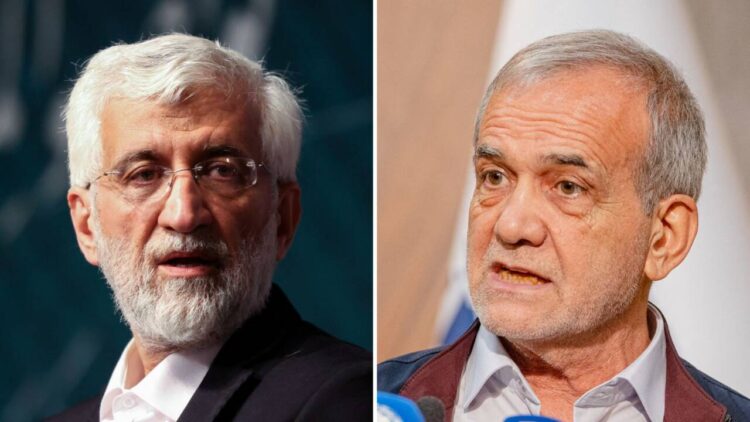Iran’s snap presidential election will go to a runoff next week after reformist-backed Masoud Pezeshkian and hardliner Saeed Jalili emerged as the leading candidates but failed to secure a majority. This outcome follows a record-low voter turnout, according to Al Jazeera.
The Ministry of Interior reported that only 40 percent of the over 61 million eligible voters participated, marking a new low for presidential elections since Iran’s 1979 revolution.
Final election data revealed Pezeshkian garnered over 10.41 million votes from the more than 24.5 million ballots counted, trailing former nuclear negotiator Saeed Jalili, who received 9.47 million votes. This is only the second time since the 1979 revolution that a presidential election has required a runoff.
Conservative Speaker of Parliament Mohammad Bagher Ghalibaf received 3.38 million votes, while conservative Islamic leader Mostafa Pourmohammadi secured 206,397 votes, eliminating them from the race. Tehran Mayor Alireza Zakani and government official Amir-Hossein Ghazizadeh Hashemi also withdrew from the contest.
Ghalibaf, Zakani, and Ghazizadeh have urged their supporters to back Jalili in the runoff next Friday to ensure a victory for the “revolution front.”
The election was held within the 50-day deadline required for selecting a new president after Ebrahim Raisi and seven others, including Foreign Minister Hossein Amirabdollahian, died in a helicopter accident on May 19.
The vote saw historically low participation, with turnout figures falling significantly below the 45-53 percent predicted by surveys. Raisi’s previous election had the lowest turnout in Iran’s history, at 48.8 percent.
In the March and May parliamentary elections, voter turnout was slightly under 41 percent, the lowest for any major poll since 1979.
Jalili, a senior member of the Supreme National Security Council, has promised to reduce inflation to single digits, boost economic growth to 8 percent, and tackle corruption and incompetence. He advocates a tougher stance against the West.
Pezeshkian, the only moderate among the six candidates approved by the Guardian Council, has been portrayed by his supporters as a pragmatic choice who could bring incremental improvements. They argue that a Jalili victory would represent a significant setback.
Jalili’s name is closely associated with nuclear negotiations in the late 2000s and early 2010s, which led to Iran’s international isolation.
For further updates on this developing story, visit [hix.ai/chat](https://hix.ai/chat).

















Comments